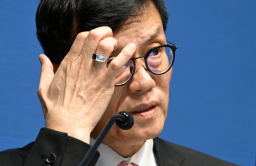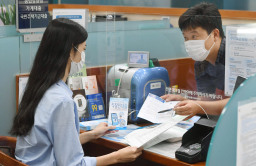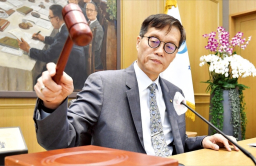-
KOSPI 2577.27 -2.21 -0.09%
-
KOSDAQ 722.52 -7.07 -0.97%
-
KOSPI200 341.49 +0.02 +0.01%
-
USD/KRW 1396 -2.00 0.14%
Korea’s credit loans balloon as regulators cap mortgages
Economy
Korea’s credit loans balloon as regulators cap mortgages
Some lenders such as the country’s top KB Kookmin Bank have raised the bar for credit loans; others may follow suit
By
Sep 05, 2024 (Gmt+09:00)
2
Min read
News+
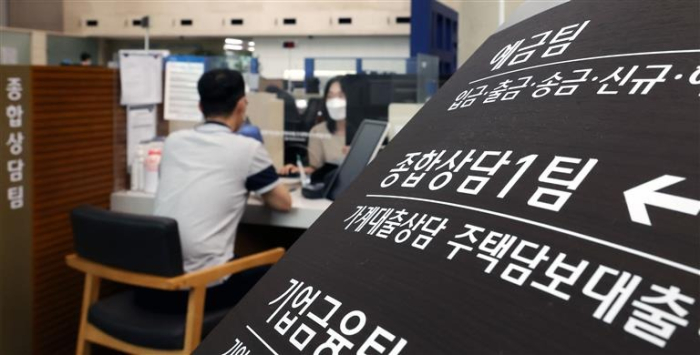
Credit loans are ballooning in South Korea as regulators tightened their grips on record-high mortgages to rein in the growth in household lending, one of the key factors for the central bank in holding interest rates.
The balance of credit loans by the country’s top five lenders – KB Kookmin Bank, Shinhan Bank, Hana Bank, Woori Bank and Nonghyup Bank – has surged by 471.3 billion won ($352.8 million) so far this month, according to financial industry sources on Thursday. The increase reported in only three business days was more than half the growth of 849.5 billion won logged last month.
The banks' mortgages rose by only a combined 186.8 billion in the Sept. 2-4 period, on the other hand, after the loans used to purchase or maintain homes, land or other real estate soared by 8.9 trillion won to an all-time high last month. Mortgages made up more than 60% of the country’s household lending.
The balance of mortgages of KB Kookimn and Shinhan fell as the country’s two largest banks took measures to cut such lending.
“It is necessary to closely monitor the credit loan growth, given sustained lending demand, although the country introduced tougher stressed debt service ratio (DSR) regulations,” said an executive vice president at a local bank.
The Financial Service Commission on Sept. 1 implemented stricter stressed DSR regulations, imposing a certain additional stress rate when calculating a borrower’s DSR as it considers the borrower’s possible increased repayment burden amid higher interest rates.
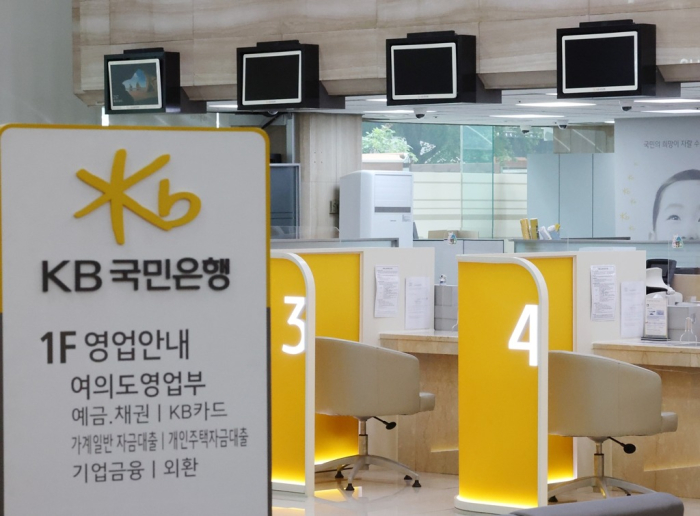
BALLOON EFFECT
Some banks took steps to curb credit loans. The country’s largest lender KB Kookmin decided not to provide credit loans exceeding customers’ annual incomes.
Such measures caused loan seekers to rush to banks with lower lending bars. Woori, the country’s fourth-largest lender by assets, ramped up credit lending by 138.7 billion won in the first three business days of the month, while KB Kookmin and Nonghyup raised such loans by only 73.3 billion won and 38 billion won, respectively.
The credit loan increase differential between KB Kookmin and Woori was only about 10 billion won last month.
“Loan demand may have moved to other banks including Woori as Kookmin sharply lowered the limits of overdraft accounts, which office workers usually use,” said a Woori official when asked about its credit loan growth.
KB Kookmin cut its overdraft limit to 50 million won from the previous 100 million won to 150 million won on Tuesday. In contrast, Woori and others provide such loans of up to 200 million won, up to 150% of customers’ maximum annual incomes.
Local banks are likely to take measures to cut household lending, however, industry sources said.
“More people are seeking to raise money through credit loans within their limits as the tougher stressed DSR rules and industry measures have reined in mortgages and lending for leases,” said an executive vice president for the loan business at another local bank.
“It will be difficult to avoid the balloon effect of lending unless we come up with additional steps.”
As banks raised their bars for lending, loan seekers rushed to other financial service providers such as insurers.
Write to Jae-Won Park and Bo-Hyung Kim at wondrful@hankyung.com
Jongwoo Cheon edited this article.
More To Read
-
Aug 22, 2024 (Gmt+09:00)
-
Aug 20, 2024 (Gmt+09:00)
-
Jul 17, 2024 (Gmt+09:00)
-
Aug 24, 2023 (Gmt+09:00)


